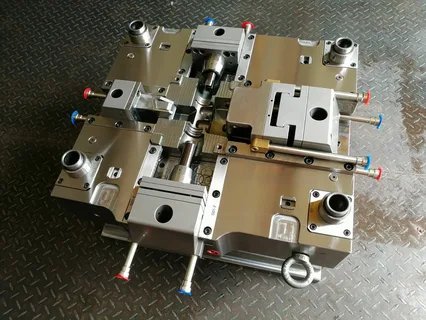Choosing the right heating system for your home isn’t just about comfort—it’s about efficiency, cost, and long-term sustainability. For homeowners exploring Affordable Furnace Installation in Kansas City, KS, understanding the impact of local climate on heating system options is essential. Kansas City’s unique blend of hot summers and cold winters means selecting a system that can handle temperature fluctuations effectively while keeping energy bills in check.
Understanding the Kansas City Climate
Seasonal Extremes and Their Effects
Kansas City lies in a humid continental climate zone, which brings hot, humid summers and cold, sometimes harsh winters. Temperatures in winter frequently dip below freezing, while summer days can reach into the 90s. These swings create a demand for a heating system that not only performs efficiently in the winter but doesn’t waste energy during transitional seasons.
Humidity Levels and Heating Efficiency
Humidity levels vary throughout the year, and this impacts heating systems. For instance, high indoor humidity in winter can make a home feel warmer at lower temperatures, potentially lowering your heating costs. However, older or oversized systems may struggle to regulate both temperature and humidity, making efficient system design and installation even more critical.
Types of Heating Systems and Their Suitability
Furnaces
Furnaces are among the most common heating systems in Kansas City homes. They operate by heating air and distributing it through ductwork. Natural gas furnaces are particularly popular due to their low operating costs and effectiveness in colder climates.
Pros:
-
Fast heating
-
Compatible with existing ductwork
-
Effective in sub-freezing temperatures
Cons:
-
May dry indoor air in winter
-
Require regular maintenance
Heat Pumps
Heat pumps are becoming a more popular option due to their ability to both heat and cool. While they are generally less effective in extreme cold compared to furnaces, newer cold-climate heat pumps can perform efficiently down to 5°F or even lower.
Pros:
-
Energy-efficient
-
Dual-purpose (heating and cooling)
-
Lower emissions
Cons:
-
Upfront costs can be higher
-
May need a backup heat source
Radiant Heating
Radiant floor heating systems work by warming the floors, which then radiate heat upward. Though not as widespread in Kansas City, they are valued for comfort and silent operation.
Pros:
-
Even heat distribution
-
Quiet and comfortable
Cons:
-
Expensive to install
-
Difficult to retrofit in existing homes
Key Climate Considerations When Choosing a System
Average Winter Temperature
Kansas City’s average low in January hovers around 20°F. A heating system must be capable of handling extended cold snaps without performance loss. Furnaces, particularly gas-powered ones, are often favored because of their ability to generate significant heat quickly.
Energy Efficiency Ratings
In colder climates, look for systems with high Annual Fuel Utilization Efficiency (AFUE) ratings or Heating Seasonal Performance Factor (HSPF) ratings in heat pumps. A higher rating means more heat is produced for the amount of energy consumed.
Insulation and Air Sealing
The performance of any heating system is deeply tied to your home’s insulation. Homes in Kansas City need well-insulated attics and walls, as well as tightly sealed windows and doors, to minimize heat loss during cold winters.
How Local Weather Patterns Influence Energy Bills
A poorly chosen or outdated heating system can significantly drive up energy bills in Kansas City’s climate. For example, if your furnace is too large, it will cycle on and off more frequently, leading to inefficiency and wear. On the other hand, undersized systems struggle to maintain comfort during freezing periods, causing them to run continuously.
With utility costs on the rise, energy-efficient systems are not just good for the environment—they are essential for long-term affordability. Homeowners who opt for professional consultations before installing or replacing heating systems tend to enjoy lower heating bills and fewer maintenance issues.
Installation Considerations in Kansas City, KS
Local Building Codes
Heating system installation in Kansas City must comply with local building codes, which consider efficiency, ventilation, and safety. Working with licensed HVAC professionals familiar with these regulations is essential.
Fuel Availability
Natural gas is widely available in Kansas City and is typically the most affordable heating fuel. Electric heat pumps are an option for those without gas service, though it’s important to evaluate electricity rates and efficiency.
Incentives and Rebates
Homeowners may qualify for rebates or tax credits when installing energy-efficient heating systems. Local utility companies and federal programs often provide financial incentives for upgrades that reduce energy use.
Choosing the Right HVAC Contractor
Not all HVAC contractors are created equal. When seeking Affordable Furnace Installation in Kansas City, KS, prioritize licensed professionals with local experience. They’ll understand which systems are best suited to the climate and how to properly size and install equipment to maximize performance.
Checklist for Selecting a Contractor:
-
Proper licensing and insurance
-
Local references and reviews
-
Free estimates with system recommendations
-
Clear explanation of warranty and maintenance options
Final Thoughts
Selecting the right heating system for your home is not just a technical decision—it’s a climate-driven one. The combination of cold winters, humidity fluctuations, and energy costs in Kansas City requires a thoughtful approach. Whether you’re installing a new furnace, exploring a heat pump, or considering radiant heat, understanding how local climate affects your options will lead to a more comfortable, cost-effective home.


